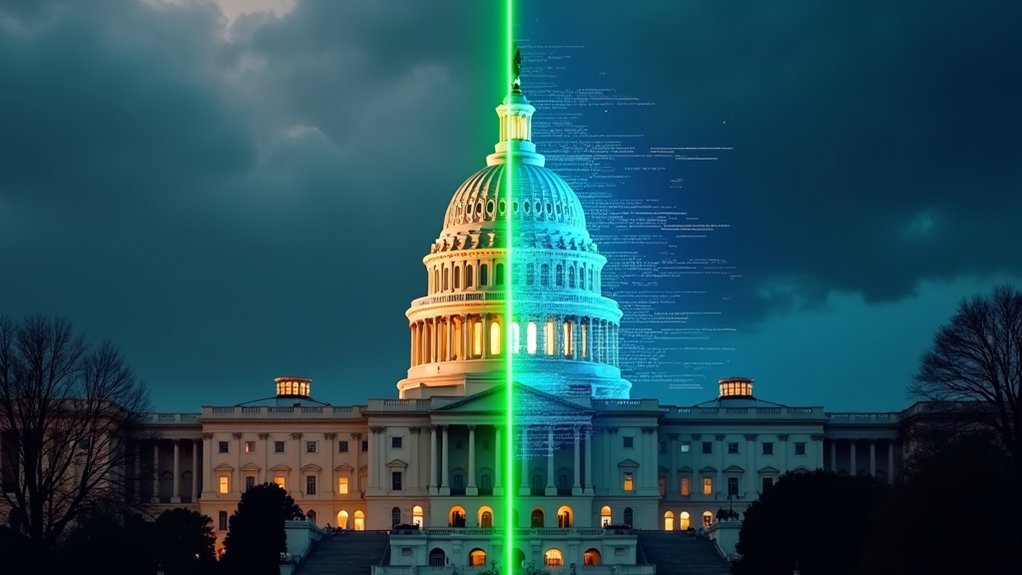As the 2024 presidential race heats up, former President Trump is making a bold play for the crypto vote. His administration just threw its weight behind a tax exemption for small crypto payments – you know, the kind you’d make buying your morning coffee. The White House is pushing for a $600 threshold, basically telling Americans they can spend their crypto without doing algebra every time they buy a sandwich.
This isn’t just Trump being Trump. Congress is actually moving on this stuff. The Genius Act, a stablecoin framework, just sailed through the House with a convincing 308-122 vote. And there’s more coming. A separate bill to write this tax-free standard into law is gaining serious traction. The Crypto.com partnership with Trump Media and Technology Group signals growing institutional support for crypto ETFs.
Trump’s not subtle about his endgame here – he wants America to be “the crypto capital of the world.” Pretty ambitious for a country that still makes people calculate capital gains on their dollar menu purchases. The executive order has also firmly established Trump’s stance against central-bank digital currency, blocking the Federal Reserve from issuing one.
Trump’s crypto vision clashes with America’s current reality, where buying a burger means doing your taxes.
Right now, crypto users have to track every single transaction for tax purposes. It’s a nightmare. The new policy would change that, treating digital assets more like regular money for small purchases. The impact could be huge. We’re talking about releasing crypto for everyday commerce, something that’s been stuck in regulatory limbo for years. Unlike stablecoin providers, traditional banks cannot create their own fiat cryptocurrencies, as this remains a government privilege.
Wall Street’s paying attention. Tokens like Cardano, Solana, and Constellation could see major gains if these capital gains taxes disappear. U.S.-based crypto projects might finally get the regulatory breathing room they’ve been begging for.
But let’s not get ahead of ourselves. As of July 2025, this is still just talk. No legislation has actually passed. Nobody knows exactly how it’ll work with long-term versus short-term gains, or which cryptocurrencies will qualify.
The whole thing needs Congressional approval and a proper regulatory framework. Still, when Washington starts making crypto-friendly noises, people listen. Even if they’re just doing it for votes.





